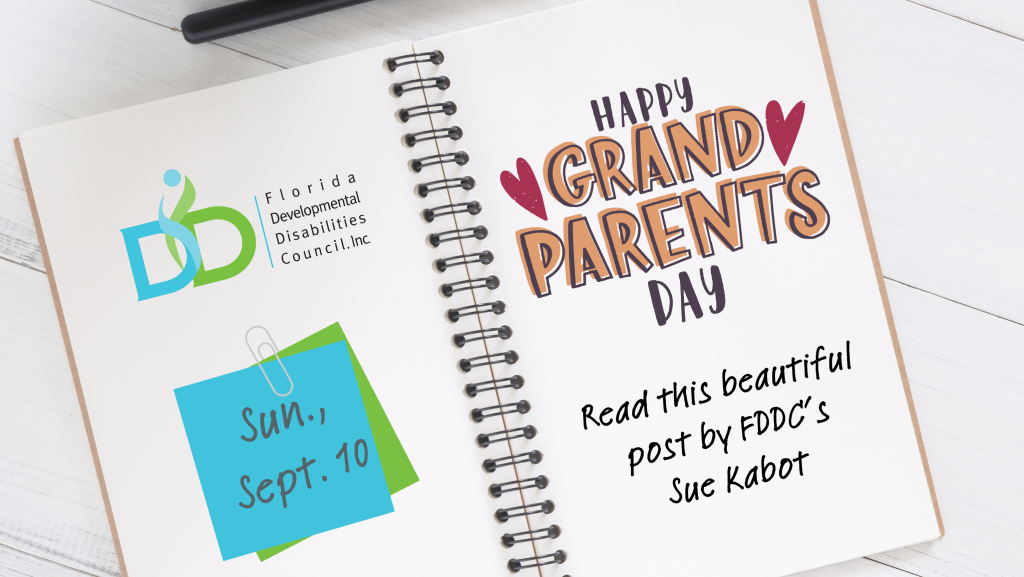I think back to the role my own grandparents played in my life, shaping my own cultural and religious beliefs. One set was younger and could take my brother and me for weekends. I remember fondly our trips to eat at the Hamburger Express, where toy trains traveled throughout the restaurant delivering your meal and our weekends to the Jersey Shore, where my pop-pop rode every ride with us, even though it made him sick. My other grandparents were older and didn’t have the strength for that, but every time we visited, there was homemade chicken noodle soup and sour ball charms that came in a can.
Likewise, when I had my own children, including Mike, who was diagnosed with intellectual disability and autism, their two sets of grandparents were quite different in terms of their interaction with my three boys. It was then that I began to understand the important role grandparents played when you have a child with developmental disabilities. One set of grandparents stepped in and provided a lot of support to my other two children, accompanying them to their sporting events, and stopping for dinner along the way. That grandmother would sit with Mike for hours as he fast-forwarded and rewound his videotapes to his favorite part. The other grandmother saw her role as providing the structure she thought my chaotic home needed, performing closet and cabinet straightening and the subsequent Goodwill runs to dispose of unnecessary clutter.
Those observations led me to an important life lesson: everyone gives in the way they know how to give and all should be appreciated. Now that I am a grandparent to four grandchildren, I try to instill that thinking in my own children—especially when they make comparisons between grandparents. The corollary to that is as the parent of a child with a disability, you have a role in helping your own parents understand how to support their grandchild and what help you need. Whether it’s staying with your child with a disability while doing something special for your other child(ren), or throwing in a load of laundry while visiting, or preparing a meal, telling grandparents specific actions will make them feel better knowing how they can help.
As a parent, there is nothing that hurts more than seeing your own child struggling to meet the needs of their family when one of their children has a disability. Let’s celebrate this Grandparents’ Day thanking them for their love, kindness, and support, and by helping them fulfill their role as grandparents to a child with a developmental disability.
Susan Kabot, FDDC Chief of Programs and Research

